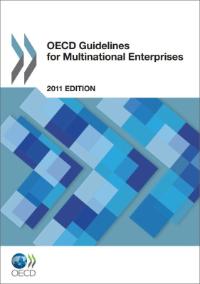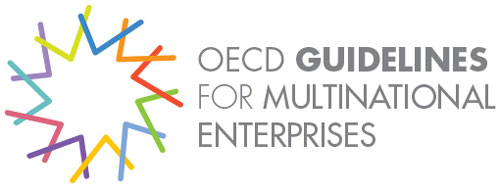Public consultation - Draft OECD Recommendation on the Role of Government in Promoting RBC
This consultation closed on 16 January 2022
INTRODUCTION The past decades have seen increased attention on the role of businesses to contribute to sustainable development and minimise harm to people, planet, and society. The OECD Guidelines for Multinational Enterprises are one of the key international instruments on responsible business conduct (RBC), providing an authoritative set of recommendations addressed by governments to businesses to meet this challenge. At the same time, governments play a fundamental role in promoting and enabling RBC. They can draw on a wide set of policy tools and approaches to make RBC more impactful, more effective and more straightforward for businesses and stakeholders alike. However, in practice governments often face the challenging task of bringing together and leveraging their wide-ranging policies in different fields (environment, labour, trade, investment, finance, development and more) to promote responsible business practices.
PURPOSE AND RATIONALE OF THE DRAFT OECD RECOMMENDATION ON THE ROLE OF GOVERNMENT IN PROMOTING RESPONSIBLE BUSINESS CONDUCT The draft OECD Recommendation on the Role of Government in promoting Responsible Business Conduct focuses on the part played by governments in the promotion of responsible business practices. It lays out a set of principles and policy recommendations to assist governments and other public authorities in their efforts to establish conditions that will effectively drive, support or promote responsible business practices, in particular through: |
 |
|
i. legal and regulatory frameworks that enable RBC; ii. policies and measures to encourage RBC across relevant policy areas; iii. the governments’ role as economic actors and in their commercial activities; iv. stakeholder participation in the development and implementation of RBC policies; and v. access to remedy.
These principles and policy recommendations are drawn from existing OECD legal instruments and other guidance documents, which already contain multiple recommendations for governments on diverse sets of issues related to RBC. The draft Recommendation on the Role of Government in promoting Responsible Business Conduct brings these existing provisions, which are currently spread across various legal instruments and documents, together and integrates them in a single instrument. The text presented for the present public consultation is a work in progress, which is subject to modification based on the inputs received in the framework of this consultation and further discussions at the OECD.
NATURE OF OECD RECOMMENDATIONS Recommendations are legal instruments adopted by the OECD Council that are not legally binding. They represent a political commitment to the principles they contain and entail an expectation that OECD Members and non-Members having adhered to them (“Adherents”) will do their best to implement them.
Access the text of the Draft Recommendation
Public consultation
HOW YOUR INPUT WILL BE USED The inputs received in the framework of the present public consultation will be shared with the Working Party on Responsible Business Conduct of the OECD (WPRBC) and will help inform the preparation by the OECD Secretariat of an advanced version of the draft Recommendation on the Role of Government in Promoting RBC. This advanced version of the draft Recommendation will then be discussed by the WPRBC at its next meeting.
YOUR DATA PROTECTION RIGHTS Any personal data provided as part of this consultation is protected consistent with the OECD Data Protection Rules. Please note, however, that your submission will be made public, as outlined above. Under the Rules, you have rights to access and rectify your personal data, as well as to object to its processing, request erasure, and obtain data portability in certain circumstances. To exercise these rights in connection with the consultation please contact RBC@oecd.org. If you have further queries or complaints related to the processing of your personal data, please contact the Data Protection Officer. If you need further assistance in resolving claims related to personal data protection you can contact the Data Protection Commissioner. |
Related Documents


